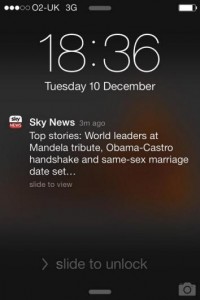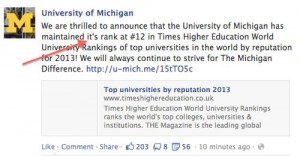Both my dad and one of my good friends are having their (respective) first books published in the coming weeks* — and the anticipation is killing me. I’ve got them both on pre-order, and amazon reminds me in red letters that “This title has not yet been released.” Released? Why not published?
According to the Oxford English Dictionary, the verb to release — in its transitive form — means (among other things) “publish or make available for publication (a document, piece of information, etc.); make available to the public (a film, recording, etc.).” The Oxford American Dictionary is a little more specific: “4. allow information to be generally available. 5. make a movie or recording available to the public.” It’s curious that neither definition offers the book as an example of this verb’s object. We’re long used to the idea of films or CDs making their public debuts in the form of a release — and indeed, movies can also “go on general release”. Both definitions above also make references to “information” being made available — but this to my mind means something quite different from the act of publishing a book or other material. To publish, according to the OED, is “to prepare and issue (a book, journal, piece of music, or other work) for public sale”.
I work in the world of music publicity, where I regularly issue press or news releases and I talk about CDs (and sometimes DVDs) being released. In the former case we’re “releasing” news and information that has, at least implicitly, been kept under wraps and from public knowledge until the appropriate time. I would argue that this sense of the verb release ties in logically with its other meanings: “to set someone free from imprisonment or confinement; free someone from a duty; allow to move freely.” Note that the OAD definition above “allows” information to be made available. It certainly implies that information that was previously restricted is at last being unleashed or revealed.
Granted, you could stretch that idea and claim that a book is being kept under wraps while it passes through the publication process, but it’s really not the same idea. So what accounts for this fairly recent phenomenon (or at least I think it’s fairly recent: please correct me if I’m wrong) of using publish and release interchangeably?
I have a few thoughts; feel free to disagree with me or to suggest other ideas.
First, is it possible that we’ve become so used to the idea of seeing, reading or hearing something the moment it becomes available — whether it’s a piece of news/gossip, a new episode or series on Netflix, or a downloadable track — that just the act of accessing or obtaining it is almost as important as the thing itself? The word release has an immediacy and even a sense of revelation that publish just can’t compete with, and we’re hungry for whatever is brand new.
Or is it something to do with the standard availability of audio and digital versions of a book, whose publication nowadays is technically more akin to a movie or CD release, given that it’s downloadable and delivered directly to your screen or device of choice?
Another related idea is that book publishers and retailers are trying to market their product as an item of leisure and entertainment — aligning it in the consumer’s mind more with movies and music and less as a category in its own right. Especially now that we’re one-stop shopping at online retailers, we want to load all our new releases into our virtual shopping baskets — whether we end up watching, listening to or reading them once they’re in our clutches.
The word publish might just have become too old-fashioned for the modern young reader-slash-consumer. It conjures up dusty images of paper, ink and printing presses, pesky nit-picking editors, and an interminable wait that guarantees it will be out of date before it even lands on the doormat (even if it is a timeless novel). The modern-day book is hip, fresh, immediate and current: it’s ‘released’ instantaneously and accessed with the touch of a button. Why would anyone consider publishing anything any more?
* Damian Fowler’s Falling Through Clouds is published by St. Martin’s Press on April 29; Brian Barder’s What Diplomats Do is released on July 16 by Rowman & Littlefield.













